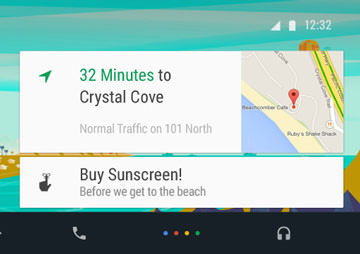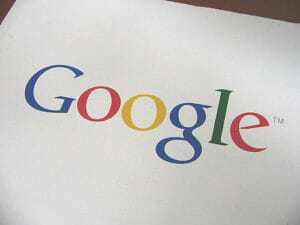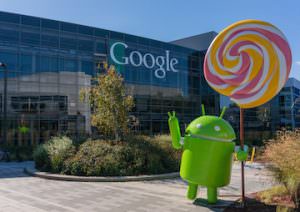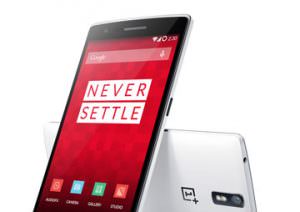Is Your Car Compatible With Your Television?
We're about to have a major setback. Machines that were never before concerned with software will speak to each other, and, unfortunately, they won't have access to a translator. Google
Google
Back during the old software wars between Microsoft and Apple, the most vexing issue for consumers had to do with compatibility — could your home computer, for instance, print a document you wrote at work?
Through ups and downs, the two companies managed to eliminate that pain point, and the emergence of the Internet as the dominant and universal platform made compatibility a nonissue.
We’re about to have a major setback. Machines that were never before concerned with software will speak to each other, and, unfortunately, they won’t have access to a translator.
Google recently announced that its Android operating system has more than 1 billion active users. Apple owns a much smaller slice of the smartphone market, but the company continues to have a strong say in conventional wisdom. The mere rumor of an iWatch, for example, has long led interest in the booming new business of wearable computers.
At its annual I/O developer conference, Google also announced new initiatives to put Android in your car, on your wrist and on television. Apple already has similar plans in the works.
The problem is that all these new wonders are powered, in the main, by your phone. And whether you have Android or Apple’s iOS is going to influence what kind of smartwatch, media streamer and, indeed, car, you buy.
What if you want to buy a new Toyota Camry, but it doesn’t have Android Auto? Might you look to a Volvo instead? What if a husband has an iPhone and his wife has a Samsung Galaxy 5? Who gets to pick the car?
The problem with this new paradigm is that it pressures you to make buying decisions based not on features, but compatibility. Once you own the Camry, you have a strong incentive to buy an iPhone rather than an Android-powered device. Of course you can just buy a dumb watch and a dumb phone, get your cable the old fashioned way and worry about a car’s physical engine instead of the digital one, but eventually you’ll be in the minority. Android has a billion active users and Google made another announcement at I/O: The company is actively developing a sub-$100 smartphone platform to get to “the next billion.”
We’ll see what Apple has to say about that. In the meantime, someone start working on the universal translator.
— Posted by Peter Z. Scheer
Your support is crucial…With an uncertain future and a new administration casting doubt on press freedoms, the danger is clear: The truth is at risk.
Now is the time to give. Your tax-deductible support allows us to dig deeper, delivering fearless investigative reporting and analysis that exposes what’s really happening — without compromise.
Stand with our courageous journalists. Donate today to protect a free press, uphold democracy and unearth untold stories.








You need to be a supporter to comment.
There are currently no responses to this article.
Be the first to respond.